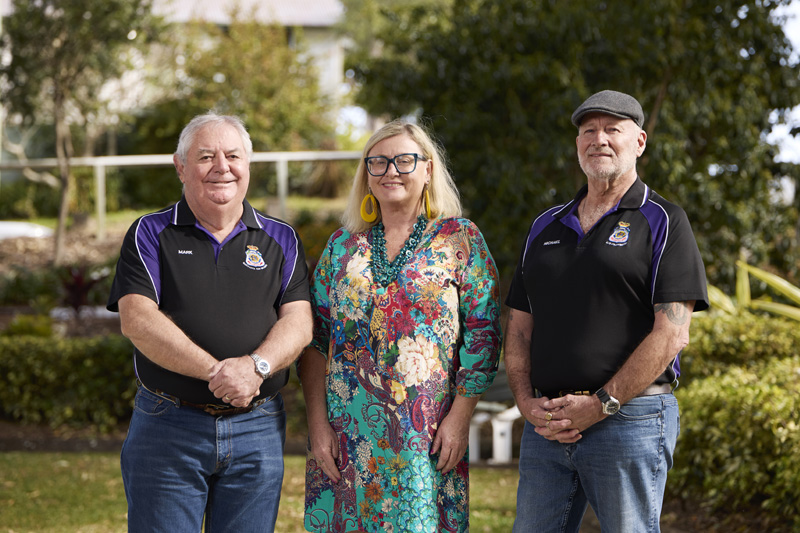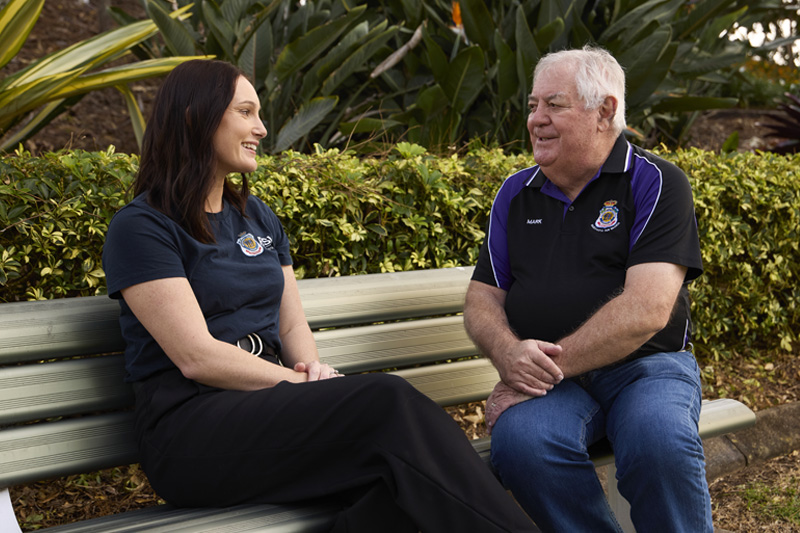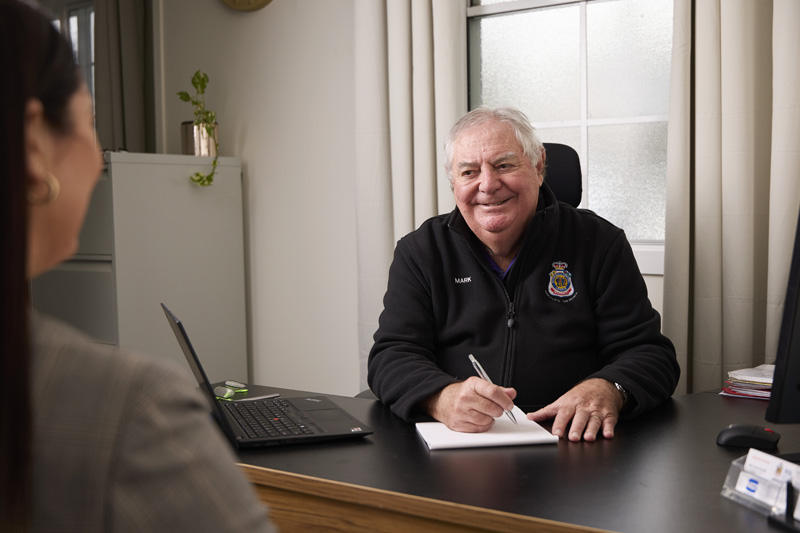18 September 2025
Stepping up as a voice for veterans
Getting into advocacy
Mark Gallagher joined the Regular Army in 1973 and served for 45 years in both the infantry and the Reserves. Following his retirement in 2018, the experience of navigating the Department of Veterans’ Affairs (DVA) claims process inspired him to give back to his community.
“Like a lot of people in the Defence Force, I suffered some of the usual injuries. I initially advocated for myself but then got to a stage where I needed professional help,” Mark explains.
“In my civilian life I worked in law enforcement and started getting a deeper understanding of the law. I knew if I was struggling, there would be other veterans out there that were finding it more difficult than me.”
Mark sought help from his local Many-Lota RSL Sub Branch and was assisted by seasoned DVA Compensation Advocate Peter Beauchamp OAM. This experience helped him to realise that he too wanted to give back to the veteran community as an advocate.
“My RSL membership is about respecting our forebears who served in the Australian Defence Force (ADF), and that legacy of mateship,” Mark says.
“I’m happy to give back for those veterans who may not be able to advocate for themselves.”
Compensation Advocates Mark Gallagher, Kendall Morrison, Michael Muir
Passing the baton
Under the mentorship of Peter Beauchamp, who helped with Mark’s own DVA claims, Mark eventually worked his way up to becoming a Level 3 Compensation Advocate, which he performs on a volunteer basis at both Manly-Lota RSL Sub Branch and Legacy.
As a Level 3 Advocate, Mark represents veterans up to and including the DVA’s Veterans Review Board, which requires in-depth understanding of legislation and a high level of interpersonal and administrative skill. While this work keeps him very busy, Mark understands the importance of passing on the assistance he received as a fledgling advocate.
“In our program, it’s essential to have succession. I’m creating a legacy that can pick up the work that I picked up from Peter when he went into semi-retirement,” Mark explains.
Mark currently has two trainee advocates under his wing – fellow veterans Michael Muir and Kendall Morrison.
“Training someone to be an advocate is an experiential journey. I sit down with the trainee advocates, help them complete the online Advocacy Training and Development Program (ATDP) sponsored by the DVA, and impart practical skills that they need to develop in their advocacy journey,” Mark shares.
Compensation Advocates Ash Marshall and Mark Gallagher
“Once I get my trainee advocates up to a certain level of independence, I can then focus on more complicated cases, as DVA claims these days are more complex and multifaceted.”
Getting results
Mark’s role as a volunteer advocate involves assisting veterans and their dependants through the DVA claims or appeals process. This journey begins from their first interaction, when Mark invites his clients to share their stories with him.
“During my time in Defence, my parent service was Army, but I spent four years with the Air Force, and I lived in a Navy wardroom for a year, so I have a broad understanding of the Defence Force, which helps because we get clients from all three services,” Mark says.
“While a service background isn’t essential to be an advocate, it does give you empathy and understanding of the challenges that come with service life.”
Once Mark gets to know and understand his client, he then guides them through their claim or appeal process.
“My priority is to get DVA to accept liability for a veteran’s medical treatment. The journey starts with an application for compensation. We need to establish a link between an injury or disease and the veteran’s service. Once the claim is lodged, we act as an interface between the veteran and DVA,” Mark explains.
“Any other compensation that comes after this is a bonus. This could consist of a fortnightly disability compensation payment, a lump sum payment for a whole person impairment, or a combination.
“There's enormous positive psychological value to a successful claim, whether that be a compensation claim, a retrospective medical discharge claim, or a Veteran's Review Board claim. There is a sense of moral victory and vindication that someone has listened to them, and the pain and suffering has been acknowledged and recognised as part of their service.”
Mark’s advice to veterans is simple. “Lodge a claim! If it’s successful, then you are going to get treatment for that claimed condition. If it’s not, and there’s grounds to appeal, that can be followed through,” he says.
“If you’ve got a genuine case, we’ll argue that case to the best of our ability. The sooner you get in, the better off you are”.
He says advocacy at Manly-Lota RSL Sub Branch is only possible through the encouragement and support of its members.
Learn more
Need help with your DVA claims or appeals? Learn more about RSL Queensland’s DVA Advocacy program.



